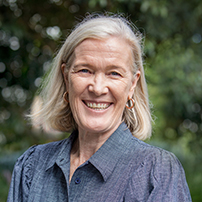It’s a story you’ve probably heard before… or perhaps even sung about.
It’s a story about Jesus, a man named Bartimaeus who stops Jesus in his tracks, and a posture that changes everything.
The Scene
I invite you to picture, for a moment, the dusty, dirty, dangerous road out of Jericho.
A blind man named Bartimaeus is sitting by the roadside; he’s positioned himself at the exit from the city. My guess is that he’s hoping to receive some charity from those heading to Jerusalem for Passover.
A blind man and a beggar, Bartimaeus is at the bottom of the heap; his positioning on the outskirts of the city serving as a reminder of his physical, emotional, and spiritual marginalisation from the community.
Isolated and ignored.
Picture this also, Jesus and His disciples on their way from Jericho to Jerusalem, where He will eventually be crucified. A large crowd is following Him, completely captivated by this man and all that He says and all that He does.
The news about Jesus has spread quickly. Bartimaeus has heard about Him and the way that he has healed people.
The Plea
And so, as he hears that Jesus is walking past Him, he begins to shout, “Jesus, Son of David, have mercy on me!”
The crowds try and rebuke him and tell him to be quiet, but this just made him call out even louder and louder, “SON OF DAVID HAVE MERCY ON ME!”
Jesus stops. He says to the crowd, “Call him”.
Following His request, the crowd calls Bartimaeus to come to Jesus. Bartimaeus throws off his cloak and runs to Him…
“What do you want me to do for you?” Jesus asks him.
“Rabbi I want to see,” Bartimaeus replies.
“Go,” Jesus says, “your faith has healed you.”
Immediately, Bartimaeus is healed and he follows Jesus on the road to Jerusalem.
It’s a beautiful story isn’t it? A man who is blind asks Jesus to have mercy on him, Jesus asks what he wants, the man says he wants to be healed, and Jesus heals him. In many ways, it is a classic gospel healing story, packed with poetry about the blind seeing and faith saving.
But sit with this passage for a little bit longer, and I think you’ll see just how much this story also has to teach us about silence, voice, and the posture that we – as disciples of Jesus – should adopt when we confront the realities of poverty and injustice in our world.
The Stilling
Upon hearing Bartimaeus call out to Him, Jesus stops. This may not sound particularly profound but consider this: it’s the first time in Mark’s gospel that Jesus is recorded as stopping. Up until now, He has been on the move… from one place to the next. Here, Jesus and His disciples are on a journey. They’re on their way to Jerusalem and Jesus knows how important it is that He gets there.
And, yet, He stops.
The voice of Bartimaeus crying out for mercy stills Him.
As Give My Voice Challenge participants journeyed their 40 days of silence, they’ve been invited to stop. To be still. To pause from the busyness of life and create space to hear the voices of those who are crying out for justice.
Christina Jessica*, exploited in a fabric mill in India, crying out for decent working conditions to protect young girls from her fate. Leila*, a mum and refugee from Syria, desperately crying out for safety for herself and her family. The Bartimeauses of this world, who – intentionally or unintentionally – have not been heard.
Until now.
As Jesus hears Bartimaeus cry out for mercy, He adopts a posture of stillness. Will you?
The Question
What follows is a seemingly simple question with the power to change everything.
“What do you want me to do for you?”
As Jesus hears Bartimeaus cry out for mercy, He doesn’t rush to provide money or healing. He doesn’t assume that He knows what Bartimaeus wants or needs. Instead, He gives Bartimaeus the respect, the dignity, and the agency of asking him what it is that he wants.
Jesus doesn’t speak for Bartimaeus; he listens to Bartimaeus.
How quickly do we rush to provide the answers? How often are we rushing to be a voice for the voiceless, assuming that we know what is best for those in need, when perhaps we should have sought to ask questions; to listen first…
As Jesus hears Bartimaeus cry out for mercy, He adopts a posture of listening. Will you?
The Invitation
I wonder if you noticed the crowd in the story? The people, who upon hearing Bartimaeus call out, responded by trying to shut him up?
Jesus could have gone to Bartimaeus himself – He could have healed him then and there – but, instead, he chooses to involve the crowd. And in doing so, Jesus tells the crowd to see Bartimaeus, notice him, interact with him, and listen to him.
Jesus leads the crowd to recognise Bartimaeus and his needs. To reject deeply held convictions, repulsions, or ignorance and to join Him in prioritising the needs of the vulnerable.
And in doing so, Jesus transforms them, too.
For me, the story of Jesus healing Bartimaeus is a powerful reminder of the importance of creating space to hear the voices of those who are often ignored or silenced in our world.
It’s a reminder that we’re invited to adopt Jesus’s posture of stillness and listening remains as important as ever.
May you prayerfully begin to create this space in your life, your church, and your community and seek to listen to the voices of the children, women, and men crying out for mercy around our world.
And may that lead to healing on a global scale.



 Melissa Lipsett,
Melissa Lipsett,

 Heather Keith,
Heather Keith,